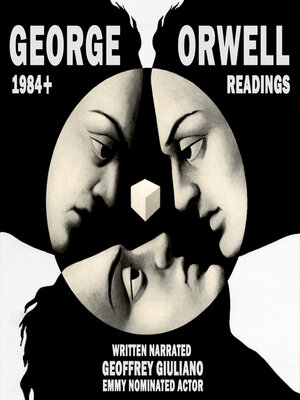
Sign up to save your library
With an OverDrive account, you can save your favorite libraries for at-a-glance information about availability. Find out more about OverDrive accounts.
Find this title in Libby, the library reading app by OverDrive.



Search for a digital library with this title
Title found at these libraries:
| Loading... |
It was George Orwell's early writing that helped shape his worldview and writing style. Here we focus on his works "The Spike" and "A Hanging," and his time as a police officer in Burma. Orwell's first published work was an essay titled "The Spike," which appeared in 1931. The essay is a vivid and harrowing account of his time spent in a homeless shelter in London. Orwell, who was struggling financially at the time, chose to experience a homeless shelter firsthand, and his account is an indictment of the dehumanizing conditions he encountered. In "The Spike," Orwell describes the brutal reality of life in the shelter, where men were treated like animals and forced to endure hunger, cold, and violence. "Shooting An Elephant" is too tragically eye-opening.
This would later inform his political views and writing, particularly his belief in the importance of social justice and his struggle against oppression. In his essay "How the Poor Die," Orwell describes his observations of the poor and their struggle with illness and death. He portrays a society where the poor are neglected and left to suffer in silence and without dignity. This essay is another example of Orwell's commitment to social justice and his belief in the importance of empathy and compassion. In 1931, Orwell joined the Indian Imperial Police in Burma, where he served for five years. There he witnessed the brutal realities of colonialism and oppression. In his essay A Hanging," (1931), Orwell recounts the experience of attending the execution of a prisoner. Orwell describes the prisoner's final moments with empathy and his account of the execution is a moving critique of the dehumanizing effects of state-sanctioned violence.
Orwell's experiences with poverty oppression and violence informed his later political and social beliefs
As read by Emmy-nominated actor Geoffrey Giuliano. With a full biography of Orwell and selected quotations.
This would later inform his political views and writing, particularly his belief in the importance of social justice and his struggle against oppression. In his essay "How the Poor Die," Orwell describes his observations of the poor and their struggle with illness and death. He portrays a society where the poor are neglected and left to suffer in silence and without dignity. This essay is another example of Orwell's commitment to social justice and his belief in the importance of empathy and compassion. In 1931, Orwell joined the Indian Imperial Police in Burma, where he served for five years. There he witnessed the brutal realities of colonialism and oppression. In his essay A Hanging," (1931), Orwell recounts the experience of attending the execution of a prisoner. Orwell describes the prisoner's final moments with empathy and his account of the execution is a moving critique of the dehumanizing effects of state-sanctioned violence.
Orwell's experiences with poverty oppression and violence informed his later political and social beliefs
As read by Emmy-nominated actor Geoffrey Giuliano. With a full biography of Orwell and selected quotations.






